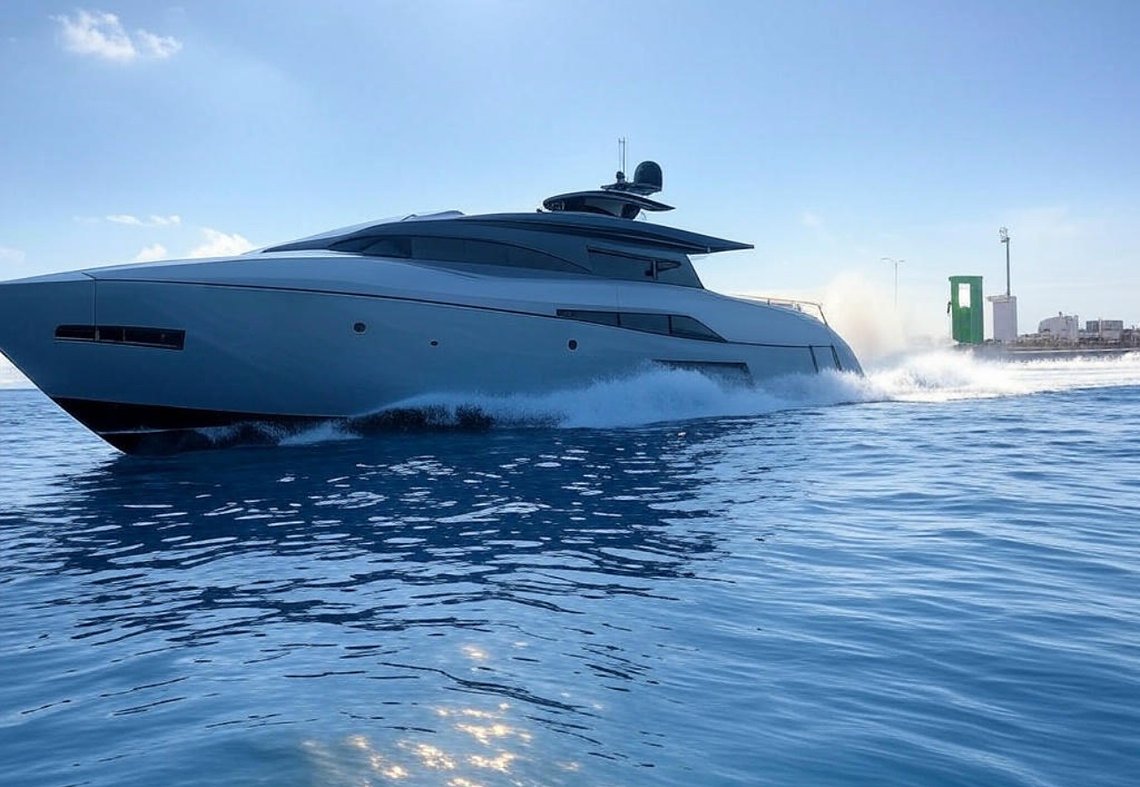The Potential of Hydrogen Boating: A Clean Future on the Water in the Next 5 Years by Roman Wroath
Discover the future of hydrogen boating with Galaxia International. Explore its potential to revolutionize maritime travel by 2030 with zero-emission technology, longer ranges, and growing infrastructure. Learn how this clean energy solution is shaping sustainable boating. By Roman Wroath

Posted on Sat 1 Feb 2025 · by Roman Wroath - Product Owner
The Potential of Hydrogen Boating: A Clean Future on the Water in the Next 5 Years by Roman Wroath
As the world races toward a sustainable future, hydrogen is emerging as a game-changer in the energy landscape—and the boating industry is no exception. With increasing pressure to decarbonize transportation, hydrogen-powered boating offers a promising solution for eco-conscious mariners and commercial operators alike. Over the next five years, advancements in technology, infrastructure, and market adoption could position hydrogen as a cornerstone of maritime innovation. Here’s why hydrogen boating is set to make waves by 2030.
Why Hydrogen for Boating?
Hydrogen’s appeal lies in its environmental credentials. When used in fuel cells, it produces zero emissions—only water vapor—making it a stark contrast to traditional fossil fuel-powered boats that emit carbon dioxide and other pollutants. Boating, from leisure yachts to ferries and cargo vessels, contributes significantly to global emissions, particularly in coastal regions. Hydrogen offers a path to cleaner waterways, aligning with international goals like the Paris Agreement and the International Maritime Organization’s target to halve shipping emissions by 2050.
Beyond its green benefits, hydrogen boasts a high energy density, enabling longer ranges than battery-electric alternatives. For boats requiring extended travel—think cross-ocean voyages or heavy-duty commercial operations—hydrogen could outpace batteries, which are often limited by weight and recharge times. As of 2025, the technology is already showing promise, and the next five years could see it mature into a viable mainstream option.
Technological Advancements on the Horizon
The foundation for hydrogen boating is strengthening. Fuel cell technology, which converts hydrogen into electricity to power electric motors, is becoming more efficient and affordable. Companies like Ballard Power Systems and emerging startups are driving down costs, with projections suggesting hydrogen production could drop below $2 per kilogram by 2030, thanks to innovations in electrolysis powered by renewable energy. This “green hydrogen,” produced using wind or solar power, is key to ensuring the entire process remains sustainable.
Storage is another critical area poised for breakthroughs. High-pressure tanks and liquid hydrogen systems are being refined to fit compactly aboard vessels without compromising safety or space. Meanwhile, experimental projects—like Norway’s hydrogen-powered ferry trials—are proving the concept works in real-world conditions. By 2030, expect these technologies to scale, with standardized designs making hydrogen systems as routine as diesel engines are today.
Infrastructure and Adoption Challenges
For hydrogen boating to take off, infrastructure must keep pace. Refueling stations are sparse in 2025, but momentum is building. Ports in Europe, Japan, and the U.S. are investing in hydrogen hubs, spurred by government incentives and private partnerships. Over the next five years, a network of coastal refueling points could emerge, mirroring the early days of electric vehicle charging networks.
The Next 5 Years: A Boating Revolution?
By 2030, hydrogen boating could transform the industry. Leisure boaters might enjoy silent, emission-free cruises, while commercial operators could slash their carbon footprints without sacrificing range or power. Analysts predict the hydrogen marine market could grow at a compound annual rate exceeding 20% through the decade, driven by regulation and consumer demand for sustainability. Regions like Scandinavia and the EU, with aggressive climate policies, are likely to lead, but global adoption could follow as costs decline.
We see hydrogen boating as more than a trend—it’s a future we’re helping to shape. Whether you’re a marina operator, boat builder, or enthusiast, the next five years offer a window to embrace this clean technology. As hydrogen-powered vessels glide into harbours worldwide, they’ll signal a new era of maritime travel—one where sustainability and performance sail hand in hand.
Roman Wroath